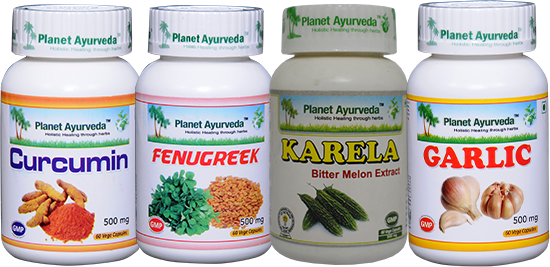Ayurvedic Management of Immune Thrombocytopenic Purpura (ITP)
Abstract
Platelets are tiny and important blood components in our bloodstream. The main focus or work of the platelets is to prevent blood clotting and abnormal bleeding. Abnormality of platelets known as ITP is an abnormal health condition in which a low platelet count in the bloodstream causes problems and abnormal symptoms in the body. ITP affects women more than men and can occur in people of all ages. In the following article, we will get to know the different causes and symptoms of ITP in detail. Also, we will discuss the natural and side-effect-free Ayurvedic treatment methods for the management of this autoimmune disease.
Introduction
Immune thrombocytopenic purpura is a disorder in which it attacks healthy platelets of the bloodstream. This is possible due to many causes while the main cause is explained as- the Immune system of one’s body tends to destroy the healthy blood platelets by misidentifying them as foreign harmful bodies. They bind with healthy platelets and destroy them one by one continuously. The regular destruction will ultimately cause the platelets to reduce in number that is very low to be able to maintain proper functioning in the body, as usual, should be. In such a disease proper evaluation and immediate management should be started to arrest the destruction and avoid future complications. Ayurvedic approaches and management for this disease are explained further in this article.

Ayurvedic Aspect
According to Ayurveda, Thrombocytopenic is known as ‘Rakta Kshaya’ which means a reduction in blood cells, including a decrease in platelet count. This reduction can be due to vitiated pitta dosha. Immune Thrombocytopenic Purpura can be loss of platelets due to autoimmune causes. Vitiated pitta dosha and rakta lead to disturbance in the body and abnormalities in the body itself. Various causative factors are responsible for Pitta dosha imbalance. Many ayurvedic therapies are indicated in the management and excretion of toxins related to the condition.
Causes
Immune Thrombocytopenic Purpura is an autoimmune disorder that is caused due to low platelets count in the bloodstream. The exact cause for it is still not known while the most probable causes for ITP are-
- Autoimmune dysfunction
- Viral infections
- Genetics
- The outcome of certain autoimmune disorders
- Side effects of certain medications
Symptoms
The most common symptom of ITP is Thrombocytopenia. Some more symptoms associated with ITP are-
- Bruising
- Petechiae
- Excessive bleeding
- Excess menstrual bleeding in women
- Bleeding disorders
- Hematuria
- Blood spots in stools
These symptoms can be mild to moderate and vary from person to person in its severity. Some people can experience all these symptoms while some may not experience any symptoms from these.
Diagnosis
Diagnostic tests for the diagnostic confirmation of Immune Thrombocytopenic Purpura are-
- Complete Blood Count
- Blood test to rule out certain infections
- Platelet antibody test
- Peripheral blood smear
- Biopsy (Bone marrow)
Treatment
The treatment depends on the diagnosis and severity of ITP. The commonest treatment pattern includes-
- Medications including Corticosteroids
- Intravenous insertion of immunoglobulin
- Anti-D immunoglobulin
- Immunosuppressive drugs
- Thrombopoietin receptor agonists
- Surgical removal of the spleen
Ayurvedic Management of Immune Thrombocytopenic Purpura by Planet Ayurveda
The planet Ayurveda prepares various Ayurvedic medicines through authentic methods described in ancient Ayurvedic texts. Each medicine is purely herbal and contains natural standardized extracts of natural herbal plants. These medicines are 100% pure and are potent enough to manage the disease they are designed for. Each medicine of Planet Ayurveda goes through quality testing before being launched and recommended to patients worldwide. The medicines used for the Ayurvedic Management of ITP are as follows-
1. Plato Plan Syrup
This ayurvedic syrup contains age-old herbs such as Giloy (Tinospora cordifolia), Ashwagandha (Withania somnifera), Amalaki (Emblica officinalis), Draksha (Vitis vinifera), etc. This syrup specifically works to increase platelet count and improve the quality and life of platelets in your body.
Dosage- Take 2 spoons twice daily.
2. Ashwagandha Capsules
These ayurvedic capsules contain natural herbal extracts of Ashwagandha (Withania somnifera). Ashwagandha is a well known Ayurvedic herb that has wonderful benefits that cannot be explained in a few words. These capsules in this disease will build the strong immunity of the body and will help recover the abnormalities and weakness in the body due to such diseases.
Dosage– Have 1 capsule twice daily
3. Punarnava Mandur
These tablets are very potent ayurvedic supplements that contain multiple herbal extracts in their formation. An iron supplement is very essential in curing various abnormalities. The many diseases managing the potency of these tablets is very helpful in treating deep abnormal diseases of the body such as ITP. This combination has ideal use in various body diseases.
Dosage- Take 2 tablets twice daily.
4. Hemo Plan Syrup
This herbal syrup contains various Ayurvedic herbs for its manufacturing. Potent-known herbs are Manjistha (Rubia cordifolia), Gorakhmundi (Sphaeranthus indicus), Shatavari (Asparagus racemosus), etc. This syrup is a natural source of iron and other essential supplements. This syrup is a well known natural blood purifier. The essential benefits of this syrup help treat such diseases effectively.
Dosage- Take 2 spoons twice daily.
5. Suvarna Basant Malti Ras
This is a patent dietary supplement of Planet Ayurveda that helps to maintain a healthy body by maintaining a healthy immune system, healthy memory, and ultimately a healthy body. The ingredients of this ras maintain a balanced Vata and Kapha dosha. The active ingredients of this ras are- Suvarna Bhasma (Gold calx), Mukta Bhasma (Mukta calx), etc. Regular intake of this ras maintains a healthy immune system and will help to deal with ITP effectively.
Dosage- 1 tablet daily to be chewed with lukewarm water.
Conclusion
Ayurveda has a broad approach to such diseases. Various medications and therapies together are indicated that work to manage the abnormal symptoms of the disease. Immune Thrombocytopenic Purpura (ITP) can be well managed without any added side effects with Ayurveda. You need to contact an Ayurvedic expert for correct management. For more information regarding Immune Thrombocytopenic Purpura or more queries regarding any disease do visit us at www.planetayurveda.com





